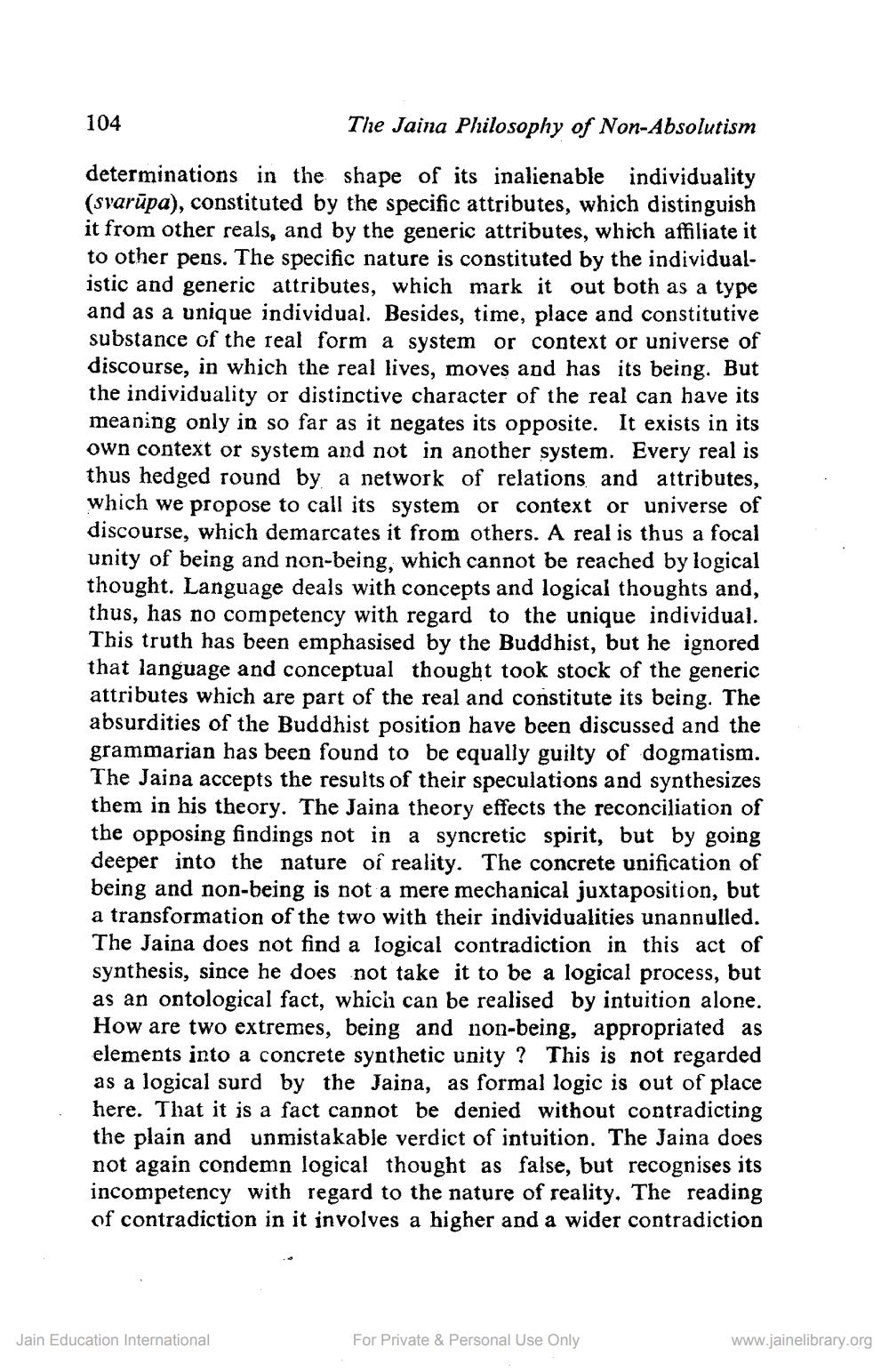________________
104
The Jaina Philosophy of Non-Absolutism determinations in the shape of its inalienable individuality (svarūpa), constituted by the specific attributes, which distinguish it from other reals, and by the generic attributes, which affiliate it to other pens. The specific nature is constituted by the individualistic and generic attributes, which mark it out both as a type and as a unique individual. Besides, time, place and constitutive substance of the real form a system or context or universe of discourse, in which the real lives, moves and has its being. But the individuality or distinctive character of the real can have its meaning only in so far as it negates its opposite. It exists in its own context or system and not in another system. Every real is thus hedged round by a network of relations and attributes, which we propose to call its system or context or universe of discourse, which demarcates it from others. A real is thus a focal unity of being and non-being, which cannot be reached by logical thought. Language deals with concepts and logical thoughts and, thus, has no competency with regard to the unique individual. This truth has been emphasised by the Buddhist, but he ignored that language and conceptual thought took stock of the generic attributes which are part of the real and constitute its being. The absurdities of the Buddhist position have been discussed and the grammarian has been found to be equally guilty of dogmatism. The Jaina accepts the results of their speculations and synthesizes them in his theory. The Jaina theory effects the reconciliation of the opposing findings not in a syncretic spirit, but by going deeper into the nature of reality. The concrete unification of being and non-being is not a mere mechanical juxtaposition, but a transformation of the two with their individualities unannulled. The Jaina does not find a logical contradiction in this a synthesis, since he does not take it to be a logical process as an ontological fact, which can be realised by intuition alone. How are two extremes, being and non-being, appropriated as elements into a concrete synthetic unity ? This is not regarded as a logical surd by the Jaina, as formal logic is out of place here. That it is a fact cannot be denied without contradicting the plain and unmistakable verdict of intuition. The Jaina does not again condemn logical thought as false, but recognises its incompetency with regard to the nature of reality. The reading of contradiction in it involves a higher and a wider contradiction
Jain Education International
For Private & Personal Use Only
www.jainelibrary.org




